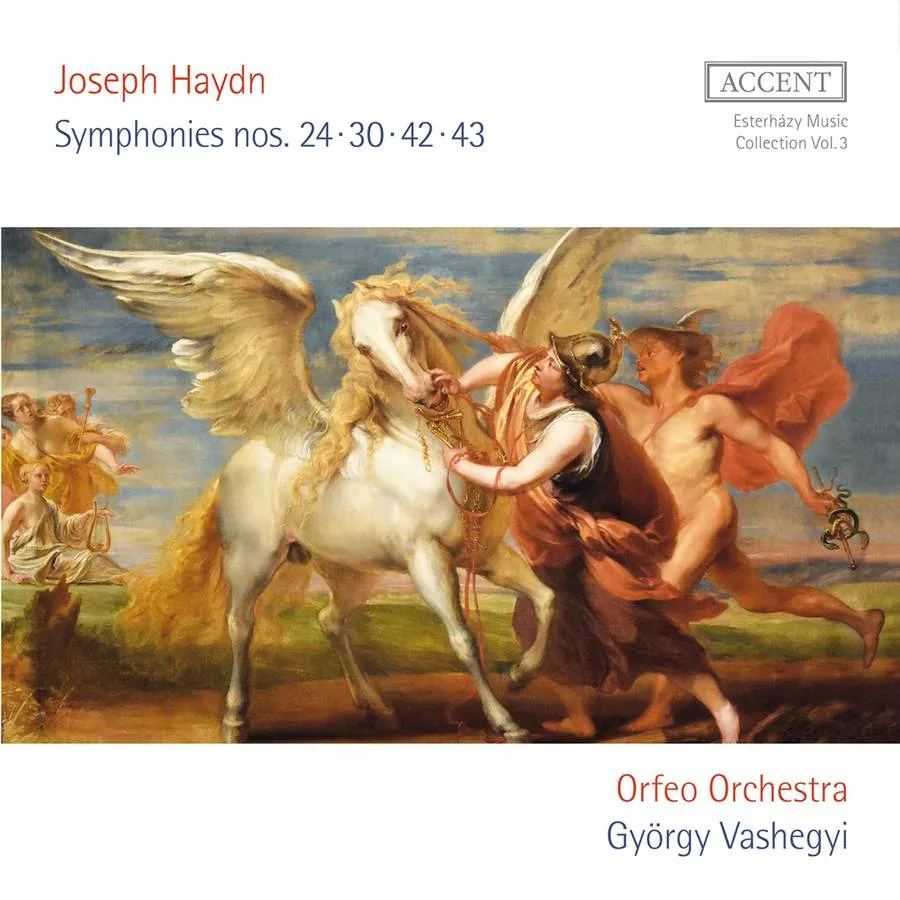
Haydn Symphonies Nos 24, 30, 42 & 43 Orfeo Orchestra/György Vashegyi Accent ACC 26503 75:01 mins
These mainly little-known pieces were composed in the mid-1760s, and while some of them are uneven in quality they all contain striking and sometimes quite original ideas. A particularly welcome discovery is Symphony No. 42 in D major, with its imposing opening movement full of surprising gestures, and its witty finale labelled ‘Scherzando e presto’. The other D major symphony here is No. 24. Its slow movement, with an elaborate flute solo skilfully performed on this recording by the Orfeo Orchestra’s player, Ildikó Kertész, soon outstays its welcome; but the finale’s pianissimo beginning, and its central section almost entirely in the minor, have more individuality.
Symphony No. 43, for some reason nicknamed the ‘Mercury’, has an Adagio featuring – as do one or two of the other slow movements here – muted violins, as well as a finale with a surprise coda. The three-movement ‘Alleluia’ Symphony No. 30 (so called because its beginning incorporates a liturgical melody) has another slow movement with a prominent flute part, and a finale in the style of a minuet.
The Orfeo Orchestra has opted to record these pieces in the hall of the Esterházy Palace, and they may well have been composed for performance there. The lively acoustic takes some getting used to, but the recording is decent enough. So, too, are the performances, without being exceptional. The conductor, György Vashegyi, surely takes the Andantino second movement of Symphony No. 42 too slowly and ponderously, but the playing is otherwise always very musical and the choice of repeats judicious.
Read more reviews of the latest Haydn recordings
Find out more about Joseph Haydn and his works
Misha Donat